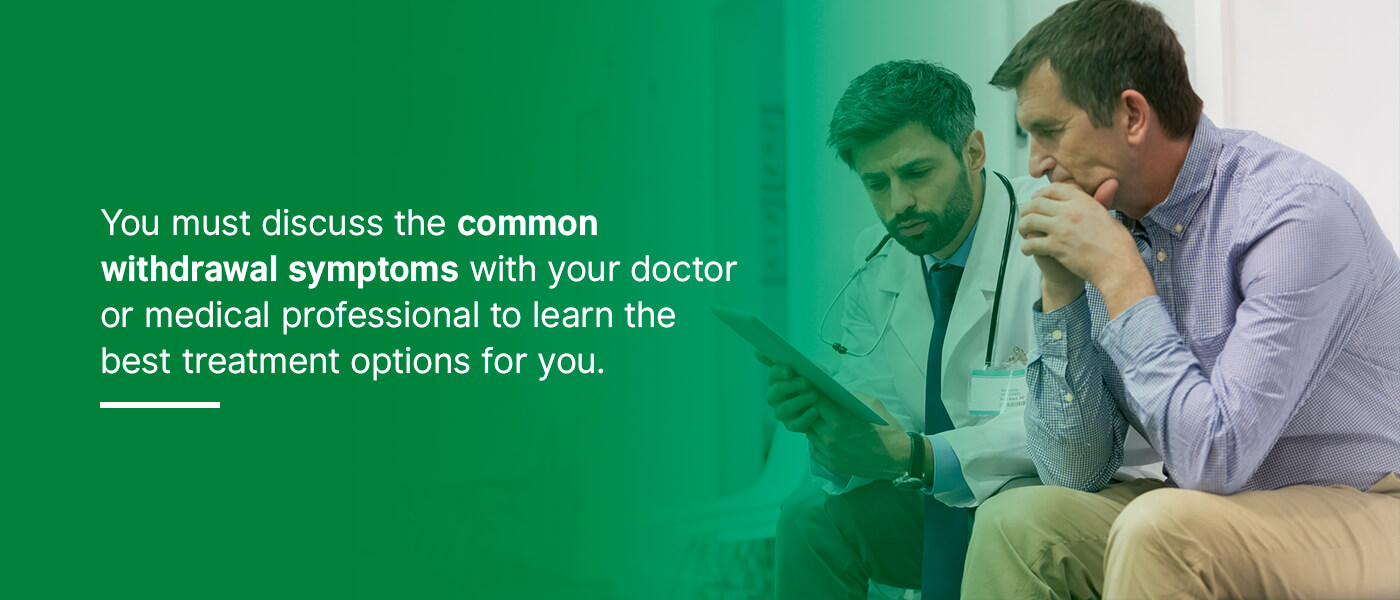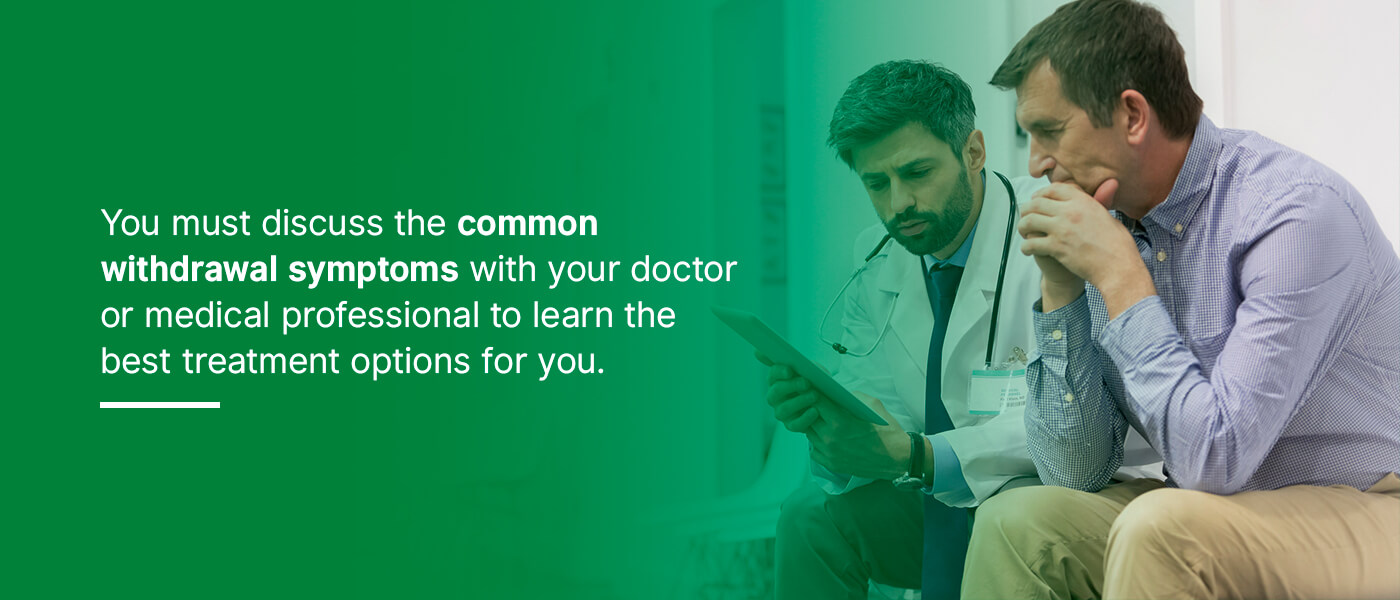We have firsthand experience with treatment clinics all around the country. CCCADA was established to assist families in guiding their loved ones into treatment at a rehab facility that best matches their needs. Our experts provide families with objectivity, helping them to distinguish between extra comforts and the care their loved one requires. This new approach improves a loved one’s chances of a successful recovery. Call today to speak with an expert: (866) 781-3882
Opioid drugs, including heroin and prescription opioid painkillers, can produce withdrawal symptoms within just a few hours of the last dose. Symptoms of opioid withdrawal can last for a week or more. While unassisted withdrawal may not be life-threatening, it can lead to relapse and potential overdose. Seeking help during withdrawal can help to ease the mental, emotional and physical discomfort that often accompanies withdrawal symptoms.
Approximately 808,000 people in the United States reported using heroin in 2018, and approximately 11.4 million people used prescription narcotic pain relievers without a prescription. The United States Centers for Disease Control and Prevention (CDC) reported 56,064 opioid overdose deaths in 2020, and this number increased to 75, 673 in 2021.
Continue reading to discover what to expect during opioid withdrawal, which treatment options are available and how MedMark Treatment Centers can help.
What Causes Opioid Withdrawal?
When you take opioid medication over an extended period, you can build a tolerance to the opioid. This means that your brain and body become desensitized to the effects of the drug and you will need more opioids to achieve the same effect.
Prolonged opioid use alters the way the brain’s nerve receptors function, and these receptors become dependant on the drug to carry out their normal functions. The time it takes to become dependent on opioids depends on each individual person. When a person becomes dependant on opioids and stops taking them or reduces the amount they take, they experience withdrawal symptoms. Withdrawal is the body’s way of physically recovering from dependence on opioids.
What to Expect During Opioid Withdrawal
Each person will experience opioid withdrawal differently, and the symptoms will depend on the level of opioid dependency. Additionally, the amount of time an individual experiences withdrawal symptoms will depend on several factors.
In general, early symptoms of opioid withdrawal begin in the first 24 hours after discontinuing the drug. Withdrawal symptoms for short-acting opioids such as heroin will typically begin within 8-24 hours of an individual’s last use and last for approximately 4-10 days. People who use long-acting opioids will typically begin to experience withdrawal symptoms within 12-48 hours after their last use and experience symptoms for 10-20 days. Early symptoms may include the following:
Constant yawningRunny noseAnxietyRestlessnessDepressionOpiate cravingsLacrimation, or teary eyesProfuse sweatingInsomnia
After the first day following an individual’s last opioid use, symptoms during opioid withdrawal can become more intense. They may include:
High blood pressureBody achesRapid heartbeatHigh body temperatureRapid breathingHyperreflexia, or overactive reflexesDilated pupils and sometimes blurry visionDiarrheaAbdominal crampingGoosebumps on the skinNausea and vomiting
Symptoms of an opioid withdrawal typically begin to improve within 72 hours and significantly decrease within a week depending on their severity.

How to Deal With Opioid Withdrawal
If you’ve stopped taking opioids and are experiencing withdrawal symptoms, get help immediately. You must discuss the common withdrawal symptoms with your doctor or medical professional to learn the best treatment options for you.
Seeking help for opioid addiction will reduce your risk of relapse and improve your overall health. Healthcare professionals can help to ease withdrawal symptoms with methods such as medical care, individual counseling, group counseling and medication-assisted treatment. They can monitor your symptoms and overall health to provide care when needed and ensure that you remain safe during withdrawal.
It’s also important to drink plenty of water during withdrawal to stay hydrated. Additionally, exercise can help to restore the brain’s chemical balance because it releases endorphins, and a balanced diet can help to restore healthy body and brain functioning. Maintaining a healthy sleep schedule can also improve emotional health and help with healing during withdrawal. Focusing on mental and physical health can significantly impact an individual’s recovery.
Treatments of Opioid Withdrawal
While opioid withdrawal symptoms are not usually life-threatening, they can still cause psychological and physical distress. Because of the discomfort involved when an individual stops using opioids, he or she may resort to using again to avoid the withdrawal process. However, the cycle of stopping opioid use only to resume it again can be a perpetual one and make it more challenging for an individual to completely end opioid use in the future. Stopping opioid use and starting again can also increase the risk of overdose.
That’s where treatment for opioid withdrawal comes in. At MedMark Treatment Centers, we offer outpatient medication-assisted treatment for opioid use disorder using buprenorphine and methadone. We operate across the U.S., providing supportive counseling services alongside medication-assisted treatment in select states. Our goal is to help individuals progress on their road to recovery with a combination of medication-assisted treatment and counseling.
Our evidence-based treatment is supported by case management, community resource referrals, substance abuse counseling and other supportive services to help patients reclaim their lives.
What to Expect During Opioid Withdrawal Treatment at MedMark Treatment Centers
When you enroll in one of our 34 programs nationwide, you can expect to receive treatment for opioid withdrawal symptoms and opioid addiction that aims to address every aspect of recovery. We understand that finding relief from opioid withdrawal symptoms only marks the beginning of the journey.
Our staff has extensive experience providing methadone maintenance treatment (MMT). You may also request treatment with buprenorphine or one of its compounds. Once the medicine significantly reduces your opioid cravings, we encourage you to focus on addressing the effects of addiction in other areas of your life.
Our services include:
Medical screenings and supervisionMethadone maintenanceBuprenorphine maintenanceAddiction educationCase managementDischarge planning and supportIndividual counseling for opioid addictionGroup substance abuse counselingRelapse preventionGuest medication servicesCoordinated pregnancy treatmentReferral to community resources
Contact Us If You’re Experiencing Symptoms of Opioid Withdrawal
Understanding opioid withdrawal can help you take the next step. At MedMark Treatment Centers, we are committed to providing medication-assisted treatment with counseling to effectively treat persistent opioid addiction and help individuals on their road to recovery. MedMark treatment center locations across the United States are state-licensed and federally certified. We also hold Accreditation by the Commission on Accreditation of Rehabilitation Facilities (CARF), which expresses our commitment to continually encourage feedback, improve services, serve the community and meet or exceed industry care standards.
For over 50 years, we’ve helped individuals experiencing opioid withdrawal symptoms and their loved ones across the United States. For more information about what to expect during opioid withdrawal and how we can help, contact us online today. Or, search for our closest center near you to begin treatment today.
The post 17 Symptoms During Opioid Withdrawal appeared first on MedMark Treatment Centers.

